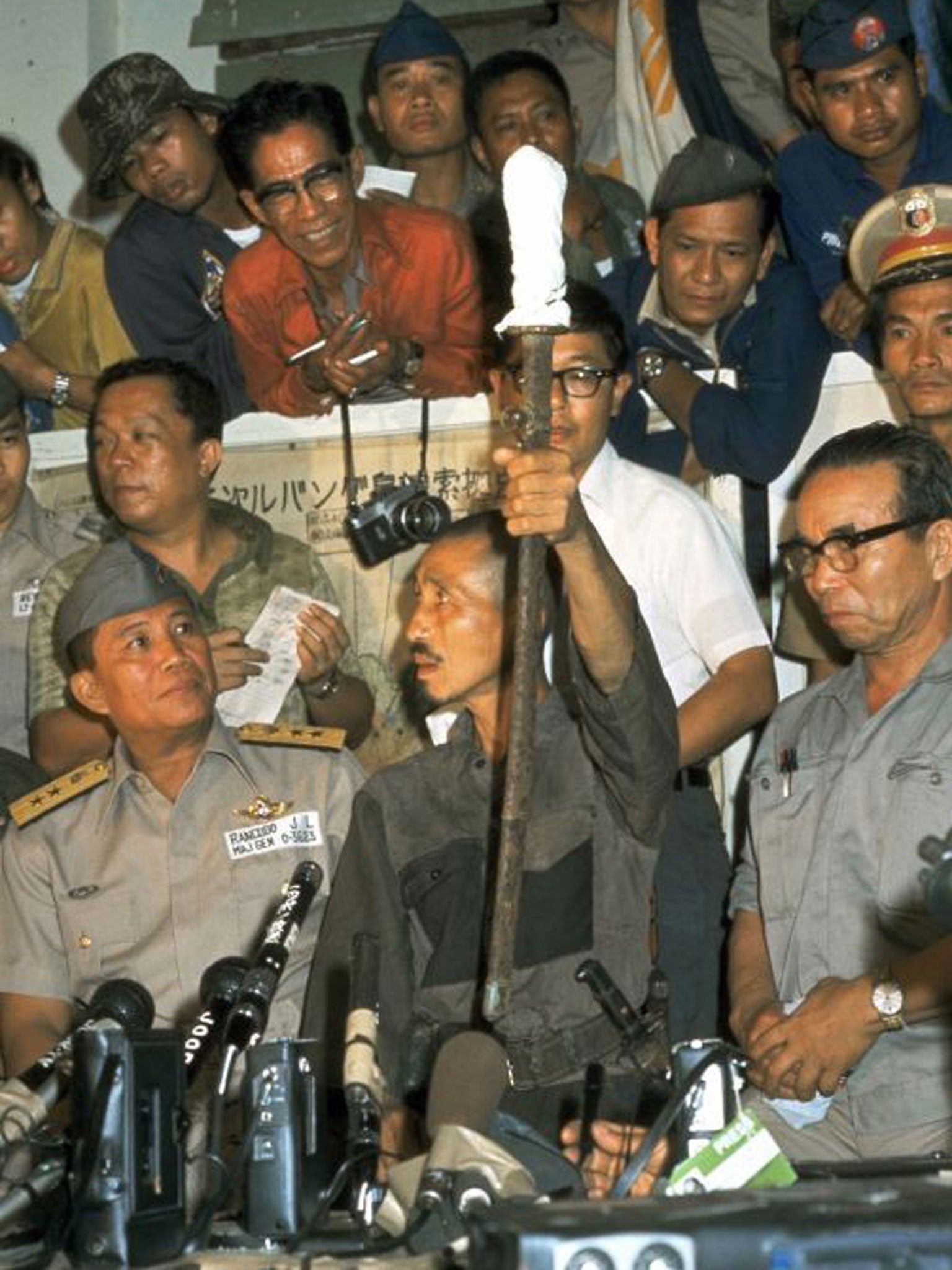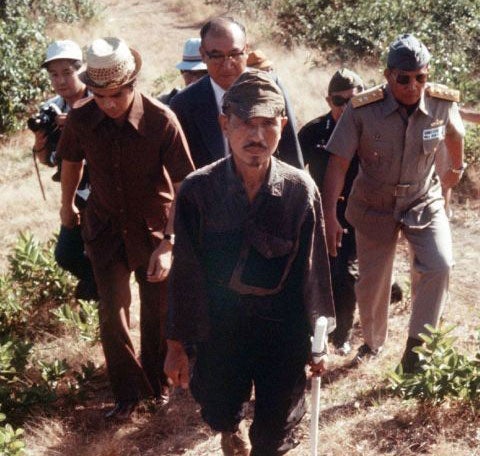Hiroo Onoda: Japanese soldier who refused to surrender for 29 years has died
Army intelligence officer hid in a Philippines jungle until 1974

Your support helps us to tell the story
From reproductive rights to climate change to Big Tech, The Independent is on the ground when the story is developing. Whether it's investigating the financials of Elon Musk's pro-Trump PAC or producing our latest documentary, 'The A Word', which shines a light on the American women fighting for reproductive rights, we know how important it is to parse out the facts from the messaging.
At such a critical moment in US history, we need reporters on the ground. Your donation allows us to keep sending journalists to speak to both sides of the story.
The Independent is trusted by Americans across the entire political spectrum. And unlike many other quality news outlets, we choose not to lock Americans out of our reporting and analysis with paywalls. We believe quality journalism should be available to everyone, paid for by those who can afford it.
Your support makes all the difference.Hiroo Onoda, the last Japanese imperial soldier to come out of hiding and surrender 29 years after the end of World War II has died aged 91.
Onoda refused to surrender for 29 years, only coming out of hiding when his former commander flew to the Lubang Island in the Philippines in March 1974 to reverse his 1945 orders to stay behind and spy on American troops.
Onoda, an army intelligence officer, died on Thursday after a brief stay in a Tokyo hospital. Chief government spokesman Yoshihide Suga on Friday expressed his condolences, praising Onoda for his strong will to live and indomitable spirit.
Onoda and another World War II holdout, Sgt. Shoichi Yokoi, who emerged from the jungle in 1972, caused a sensation when they returned home to huge heroes' welcomes.
After graduating from school in 1939, Onoda worked for a Japanese trading firm in Shanghai before he was drafted into a military academy.
He was dispatched to Lubang, about 150 kilometers (90 miles) southwest of Manila in December 1944.
Most Japanese soldier surrendered when US troops landed on Lubang in February 1945, though hundreds remained missing for years after the war.
But Onoda refused to give up, despite at least four searches during which family members appealed to him over loudspeakers and flights dropped leaflets urging him to surrender.

He told ABC in 2010 that the leaflets were filled with mistakes "so I judged it was a plot by the Americans."
Struggling to feed himself, his mission became one of survival. He stole rice and bananas from local people down the hill, and shot their cows to make dried beef.
The turning point came on 20 February, 1974, when he met Norio Suzuki, a young traveller, who ventured to Lubang in pursuit of Onoda.
Suzuki returned to Japan and contacted the government, which located Onoda's superior, Maj. Yoshimi Taniguchi, and flew him to his hideout in Lubang to deliver his surrender order in person.
In his formal surrender to Philippine President Ferdinand Marcos, Onoda wore his 30-year-old imperial army uniform, cap and sword, all still in good condition.
After the furore surrounding his return died down, Onoda bought a ranch in Brazil. He later was head of a children's nature school in northern Japan.
"I don't consider those 30 years a waste of time," Onoda said in an interview in 1995. "Without that experience, I wouldn't have my life today.
"I do everything twice as fast so I can make up for the 30 years," he added. "I wish someone could eat and sleep for me so I can work 24 hours a day."
Additional reporting by agencies
Join our commenting forum
Join thought-provoking conversations, follow other Independent readers and see their replies
Comments